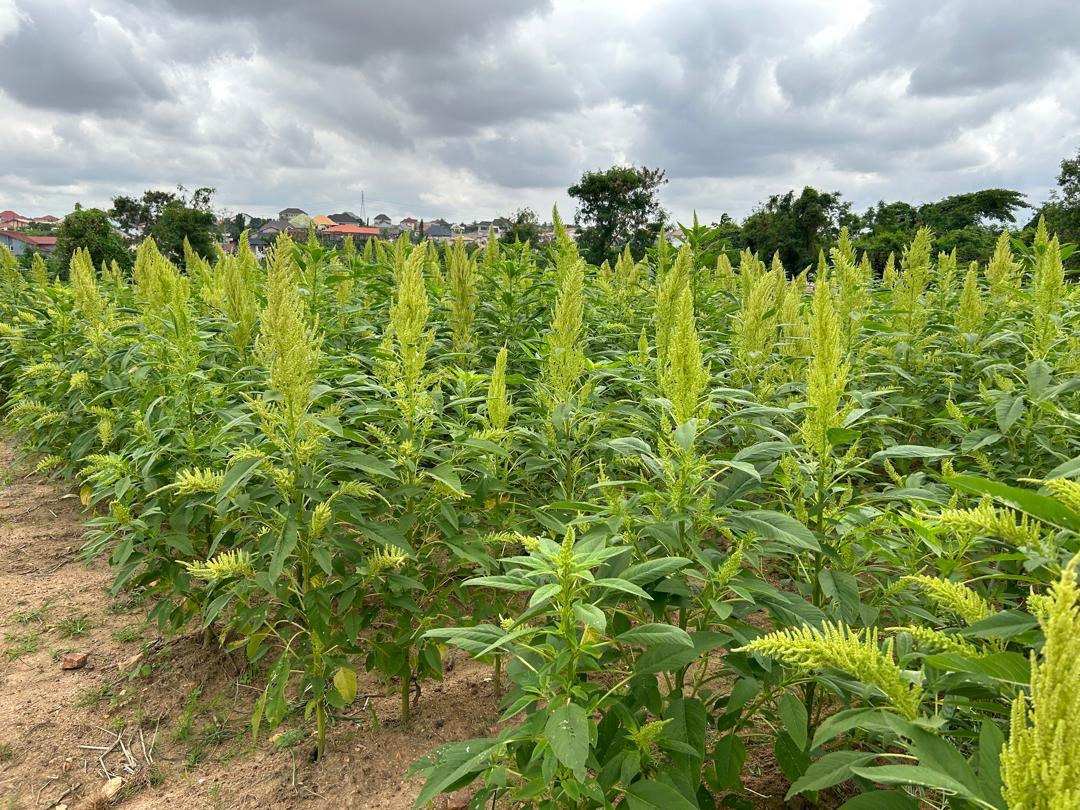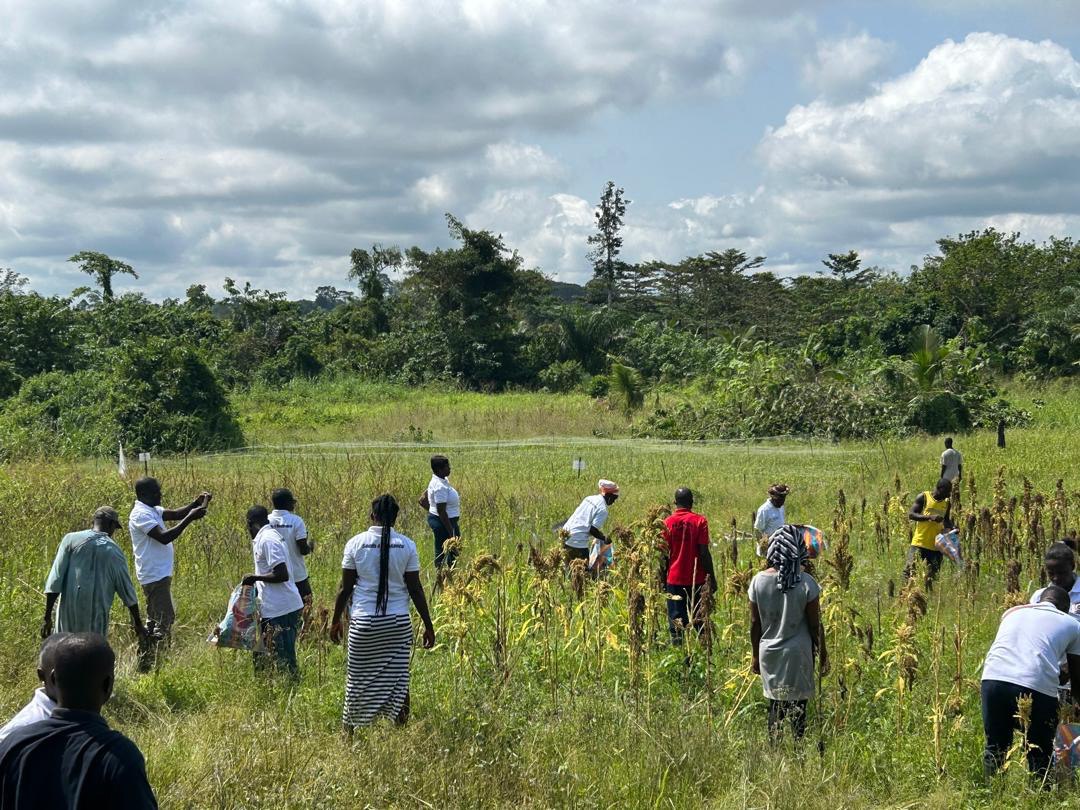Contextual Nuances of Knowledge Translation in Ghana
Joyce Koranteng-Acquah
07/01/2024 | Reflections
Introduction
I've always been intrigued by the dynamic interplay between scientific research and policy development. This fascination led me to explore how Ghana's diverse geographical and cultural landscapes influence the translation of scientific knowledge into agricultural policies.
My research focused on the Council for Scientific and Industrial Research (CSIR), which oversees thirteen research institutes including the Crop Research Institute (CRI), Food Research Institute (FRI), Institute for Scientific and Technological Information (INSTI), Science and Technology Policy Research Institute (STEPRI), Plant Genetic Resources Research Institute (PGRRI), among others. Each institute has a unique focus, yet all share a common goal – to enhance agricultural productivity and sustainability through scientific research and policy recommendation. Additionally, the Centre for Agriculture and Bioscience International (CABI), a global organisation with a notable presence in Ghana, became an essential part of my study due to its role in improving agricultural practices, managing invasive species, and enhancing food security and sustainability.
Research Journey in Ghana
Accra, Ghana's bustling capital and the head office of CSIR, served as the starting point of my journey. Here, I engaged with directors from FRI, INSTI, and CABI to discuss topics like post-harvest crop management, digital infrastructure, pest management, and community engagement. These interactions highlighted how these institutions collaborate to address agricultural challenges. Following this, I travelled to Fumesua in Kumasi, the heart of the Ashanti region and home to CRI's headquarters. This transition marked a shift from the bustling urban landscape to lush greenery and serene surroundings of Kumasi. CRI's multifaceted role in agricultural research and its emphasis on practical application and community collaboration provided a rich context for examining the interface between scientific research and policy development in agriculture.
Case Studies
The Crop Research Institute (CRI), the largest of CSIR's thirteen institutes, focuses on enhancing crop productivity and sustainability, directly impacting farmers' livelihoods and the agricultural sector. Operating field stations across various locations in Ghana, CRI's research benefits from diverse environmental conditions, allowing for studies on how geography affects crop performance.
Collaboration with Farming Communities
CRI and PGRRI cultivated various plant accessions of Amaranth, Cochorus, and Roselle at Kwadaso, and distributed seeds to farmers to plant at Boadi and Barekese fields, as well as on their individual farms. Farmers were engaged in participatory varietal crop selection to identify preferred varieties for multiplication and redistribution. In this collaborative approach, farmers are engaged in decision-making, facilitating the translation of scientific knowledge into practical agricultural practices tailored to specific contexts. Continued evaluation allows researchers and farmers to jointly appraise progress, potentially creating crop varieties better adapted to local conditions and readily adopted by farming communities.
Contextual Adaptation of Agricultural Practices
The experiences of CRI’s field stations in Fumesua, Kwadaso, Boadi, and Barekese provide a compelling case study of this necessity. Each field station operates as a living laboratory, where research findings are tested, refined, and eventually translated into actionable recommendations for local farmers. Success at Kwadaso and Boadi, characterised by fertile soils and favourable climates, contrasts with challenges at Barekese, where swampy soils hinder crop performance. The stark differences in environmental conditions across the field stations illustrate the need for context-specific. agricultural practices. These experiences align with the broader theme of translating scientific research into practices sensitive to local contexts. This approach ensures that agricultural advancements are not only theoretically sound but also practically viable. By acknowledging and addressing local variations, researchers and policymakers can develop more resilient and sustainable agricultural systems.
Centre for Agriculture and Bioscience International (CABI)
CABI plays a pivotal role in Ghanaian agriculture by integrating local knowledge and practices into research and policy recommendations. Through its initiatives, CABI focuses on sustainable pest management practices tailored to local needs and conditions of farming communities. This approach considers local cultural beliefs and practices, ensuring acceptance and adoption among farmers. For instance, in regions where cultural norms discourage pesticide use among women farmers, CABI introduced neem extract as an alternative pest management strategy. This culturally sensitive approach not only addresses pest problems but also ensures higher adoption rates among farmers to improve agricultural productivity and sustainability.
Knowledge Co-Production
From an ethnographic perspective, farmers actively engage with these institutions to develop technologies through a dynamic exchange of knowledge and practices. This collaborative process involves farmers participating in critical stages such as participatory varietal selection at CRI, where their insights contribute to identifying locally suitable crop varieties. Similarly, at CABI, efforts to integrate indigenous knowledge into pest management strategies, such as using neem extract aligned with cultural norms, enhance acceptance and adoption among farming communities. This interactive approach not only empowers farmers by recognizing their expertise and practical insights but also ensures that technologies developed are relevant and effectively implemented. This contrasts with passive adoption scenarios where farmers have limited involvement in shaping agricultural innovations, potentially reducing their effectiveness and applicability in local contexts. However, the extent to which indigenous knowledge is valued in academic frameworks often depends on its perceived utility and alignment with research objectives. This raises questions about its broader recognition beyond its contributions to scientific inquiries and goals, highlighting the need for a more inclusive approach that appreciates indigenous knowledge for its intrinsic value and practical utility.
Conclusion
The dynamic interplay between scientific research and policy development in agriculture is exemplified by the activities of CRI and CABI in Ghana. CRI's collaborative efforts demonstrate how local research, participatory varietal selection, and contextual adaptation advance crop productivity and farmer engagement. Similarly, CABI's integration of local knowledge and cultural practices into sustainable pest management strategies highlights the importance of culturally sensitive agricultural interventions. These case studies emphasise the complexity and necessity of involving multiple stakeholders in an effective science-policy interface. While the participatory and contextually adapted approaches exemplified by CRI and CABI offer many benefits, they also raise questions about how to best incorporate these practices into broader agricultural policy frameworks.
Joyce Koranteng-Acquah is a researcher with a background in chemistry, nuclear science, and science policy. Currently pursuing a Ph.D. in sociology at the University of Exeter, she holds a MPhil degrees in History of Science, Technology & Medicine (University of Manchester) and Nuclear & Radiochemistry Chemistry (University of Ghana) and a BSc in Chemistry from the University of Ghana. With a decade of experience as a Research Scientist at the Ghana Atomic Energy Commission and Head of Science Outreach & Communication at Ghana Space Science & Technology Institute from 2019-2022, she actively engaged in science outreach. Committed to research-informed policy, she developed a policy toolkit for GSSTI in 2021. She also contributed to teaching as a Teaching Assistant at the University of Ghana in 2007-8. Joyce has organized significant events, such as the West African International Summer School for Young Astronomers in 2017. Her scholarly contributions are reflected in publications and participation in conferences, showcasing a commitment to advancing scientific knowledge. Recognized for outstanding contributions, she received prestigious awards–Presidential Award for Deputy Project Manager, Ghana Radio Astronomy Observatory Project and Best Research Scientist Worker, GSSTI.
Acknowledgements: This work was done within the PHIL_OS project.
Published: 07/01/2024


